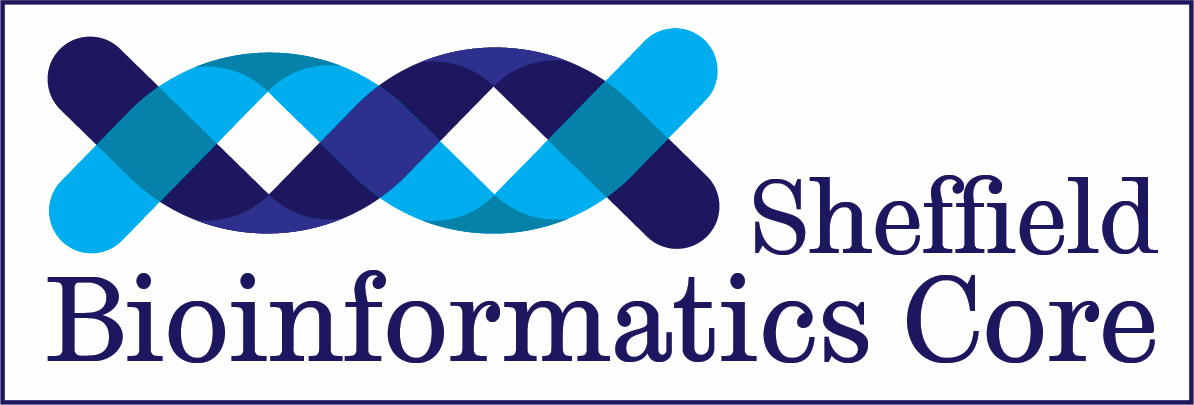web : sbc.shef.ac.uk
twitter: SheffBioinfCore
email: bioinformatics-core@sheffield.ac.uk
The course will comprise of three sessions and be held online using Blackboard Collaborate
Please only sign-up to the course if you are available on these dates, or prepared to devote time to review any sessions that you miss
Please use this link to register for the course
As the data generated from high-throughput biological experiments increase in volume and become more complex, the ability to manipulate and visualise data is a highly-desirable skill in academia and industry. Whilst familiar tools such as Excel allow basic manipulations, they are often not scalable to larger datasets and are not ameanable to reproducible analysis.
R is a highly-regarded, free, software environment for statistical analysis, with many useful features that promote and facilitate reproducible research.
In this course, we give an introduction to the R environment and explain how it can be used to import, manipulate and visualise tabular data.
After the course you should feel confident to start exploring your own dataset using the materials and references provided.
These instructions are also described in a video:- https://youtu.be/QIubJ8W8R4g
1) First, install both R and RStudio for your operating system.
Install R by downloading and running this .exe file from CRAN. Also, please install the RStudio IDE. Note that if you have separate user and admin accounts, you should run the installers as administrator (right-click on .exe file and select “Run as administrator” instead of double-clicking). Otherwise problems may occur later, for example when installing R packages.
Install R by downloading and running this .pkg file from CRAN. Also, please install the free RStudio IDE
You can download the binary files for your distribution from CRAN. Or you can use your package manager (e.g. for Debian/Ubuntu run sudo apt-get install r-base and for Fedora run sudo yum install R). Also, please install free the RStudio IDE.
2) Please download and extract (un-zip) this zip file into the directory on the computer that you wish to work in
3) Create an RStudio project using the menu File -> New Project -> Existing Directory and browse to the directory that you extraced the zip file to. Rstudio will refresh so that the working directory corresponds to the course data folder.
4) Type the following into the R console to install some extra R packages required for the workshop
install.packages("dplyr")
install.packages("ggplot2")
install.packages("readr")
Mac Users may get the following error message when trying to install these packages
xcrun error: inactive developer path (/Library/Developer/CommandLineTools), missing xcrun at:.....
If this is the case, you will need to follow the instructions from this link to install “Xcode”
Window users might get a message that Rtools is required. This shouldn’t be necessary, but you might need it for other packages. It can be installed here:-
https://cran.r-project.org/bin/windows/Rtools/
5) Check your installation. You can check everything is installed by copying and pasting this into the R console
source("https://raw.githubusercontent.com/sheffield-bioinformatics-core/r-online/master/check_packages.R")
Please watch this short presentation (<10 minutes) before attending the workshop
For queries relating to collaborating with the Bioinformatics Core team on projects: bioinformatics-core@sheffield.ac.uk
Join our mailing list so as to be notified when we advertise talks and workshops by subscribing to this Google Group. You can also connect with us on Linkedin.
Requests for a Bioinformatics support clinic can be made via the Research Software Engineering (RSE) code clinic system. This is monitored by Bioinformatics Core staff, so we will ensure the appropriate expertise (which may involve individuals from multiple teams) will be available to help you
Queries regarding sequencing and library preparation provision at The University of Sheffield should be directed to the Multi-omics facility in SITraN or the Genomics Laboratory in Biosciences.
